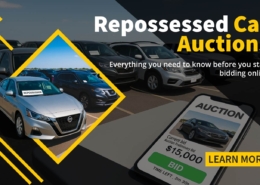 https://auction.ridesafely.com/images/2025/09/reserve-vs-no-reserve-auction-banner.jpg
865
1440
RideSafely
/images/2025/01/ridesafely-logo.svg
RideSafely2025-09-05 15:09:492025-09-08 11:21:31Auction Reserves vs. No-Reserve Auctions: The Complete Guide
https://auction.ridesafely.com/images/2025/09/reserve-vs-no-reserve-auction-banner.jpg
865
1440
RideSafely
/images/2025/01/ridesafely-logo.svg
RideSafely2025-09-05 15:09:492025-09-08 11:21:31Auction Reserves vs. No-Reserve Auctions: The Complete GuideIntroduction: Aligning Your Car with Your Lifestyle
Selecting the ideal car involves more than aesthetic preferences; it requires a thoughtful assessment of your lifestyle, budget, and long-term needs. Whether you’re a seasoned car owner or a first-time buyer, understanding how to match a vehicle to your daily life is crucial for ensuring lasting satisfaction and utility.
Evaluate Your Driving Conditions
City Driving: Compact and Fuel Efficient
For those primarily navigating urban landscapes, compact cars offer the advantage of easy maneuverability and better fuel efficiency. Models like the Honda Civic or Toyota Corolla are celebrated for their reliability and economical fuel consumption, ideal for city dwellers.
For city dwellers, compact cars offer easier maneuverability and better fuel efficiency. Consider exploring the Diverse Range of Vehicles Available at RideSafely for options that suit urban living.
Highway Commuting: Comfort and Stability
Long-distance commuters should prioritize comfort and fuel efficiency. Sedans such as the Hyundai Sonata or Ford Fusion, known for their smooth rides and durable build, ensure a serene highway experience and cost-effective mileage.
Off-Road Adventures: Durability and Power
For the adventurers, vehicles equipped with robust off-road capabilities like the Jeep Wrangler or Toyota Land Cruiser provide the necessary power and durability to tackle tough terrains, ensuring safety and exhilarating performance.
Learn more about how you can Buy Cars at Wholesale Auctions: No Dealer License Required to find powerful vehicles at great prices.
Consider Your Passenger and Cargo Needs
Family-Friendly Vehicles: Safety and Space
Families will find SUVs and minivans like the Kia Sorento or Honda Odyssey ideal, offering ample space, multiple seating configurations, and advanced safety features to protect loved ones.
Dive into our Top Used Cars for Teens at Auctions: Safe & Affordable to find reliable, family-friendly vehicles.
Singles and Couples: Style and Technology
Young professionals or couples might lean towards stylish, tech-forward cars like the Tesla Model 3 or Audi A4, which offer cutting-edge technology and sleek design—perfect for both daily commutes and special outings.
For singles and couples, the appeal often lies in style and advanced technology. Our guide, Explore the Diverse Range of Vehicles Available at RideSafely, showcases vehicles that blend technology with aesthetics, ideal for both personal and professional use.
Analyze Your Budget: Cost-Effective Car Ownership
Initial Purchase Price
Consider cars within your budget that do not compromise essential features. Brands like Hyundai and Kia offer excellent value with competitive pricing and extensive warranties.
Ownership Costs: Fuel, Insurance, and Maintenance
Calculate the total cost of ownership, including maintenance, insurance, and fuel expenses. Opt for cars with a reputation for reliability and low maintenance costs, such as Toyota or Subaru, to minimize long-term expenses.
Resale Value
Invest in cars known for retaining their value. Brands like Honda and Toyota excel in this regard, ensuring that your investment remains robust even when it’s time to sell.
Leverage Technology: Smart Features Enhance Driving Experience
Safety Innovations
Opt for vehicles equipped with advanced safety features such as automatic emergency braking, adaptive cruise control, and lane departure warnings, which significantly reduce the risk of accidents.
Connectivity and Infotainment
Choose models that support seamless smartphone integration with ample connectivity features like Apple CarPlay and Android Auto, ensuring access to navigation, music, and more while on the move.
Energy Efficiency and Environmental Impact
Consider electric vehicles (EVs) or hybrids to reduce carbon footprint and fuel costs. Models like the Chevrolet Bolt or Toyota Prius offer impressive range and fuel economy.
Closing Thoughts: Making an Informed Decision
Choosing the right car involves careful consideration of your specific needs, budget, and the long-term implications of your decision. By assessing your lifestyle requirements and doing thorough research, you can select a vehicle that not only meets your expectations but also enhances your overall quality of life.
Appendix: Choosing the Right Car – A Visual Guide
| A[Identify Needs] –> | |City| B[Compact Car] |
|---|---|
| A –> | |Highway| C[Sedan] |
| A –> | |Off-Road| D[SUV/Truck] |
| B –> | E[Models: Honda Civic, Toyota Corolla] |
| C –> | F[Models: Hyundai Sonata, Ford Fusion] |
| D –> | G[Models: Jeep Wrangler, Toyota Land Cruiser] |
| E –> | H{Check: Budget} |
| F –> | H |
| G –> | H |
| H –> | I[Tech & Safety Features] |
| H –> | J[Resale Value Consideration] |
| I –> | K[Final Decision] |
| J –> | K |
This flowchart delineates the decision-making process for choosing the right car based on driving needs, budget constraints, and desirable features, guiding buyers towards making an informed purchase.
Car Buying FAQs: Key Questions Answered
What factors should I consider when choosing a new car?
Consider your budget, the car’s fuel efficiency, safety features, technology integrations, and whether it meets your space requirements for passengers and cargo. Evaluating your primary use for the vehicle—whether for commuting, family needs, or recreation—also plays a critical role.
How do I decide between buying a new or used car?
Deciding between a new or used car depends on your budget and preference for the latest features. New cars offer the latest technology and warranties, but come with higher costs and steeper depreciation. Used cars are more affordable but might carry hidden maintenance costs and have fewer modern features.
What should I know about the total cost of ownership for a car?
The total cost of ownership includes the purchase price, insurance costs, maintenance expenses, and the cost of fuel or electricity. Researching these aspects in advance can help you budget more accurately and select a car that ensures economic efficiency over its lifetime.
How important are safety features in a new car?
Safety features are crucial as they can significantly reduce the risk of accidents. Features such as automatic emergency braking, adaptive cruise control, and lane-keeping assist are highly recommended to protect you and your passengers.
Can technology in cars help improve driving experience?
Absolutely! Modern cars come equipped with advanced infotainment systems, smartphone connectivity, and driver-assistance technologies that not only enhance driving pleasure but also improve safety and navigation.
What is the best way to test drive a car?
When test driving a car, spend enough time to comfortably assess the vehicle’s handling, braking, comfort, and the functionality of its features. Try driving on different types of roads and conditions to gauge performance and ensure the vehicle suits your driving style.
How can I check the reliability of a car model?
Check reliability ratings from trusted automotive research firms, read consumer reviews, and explore historical data on model recalls and common issues. This information can provide valuable insights into the long-term performance of the car model you’re considering.





